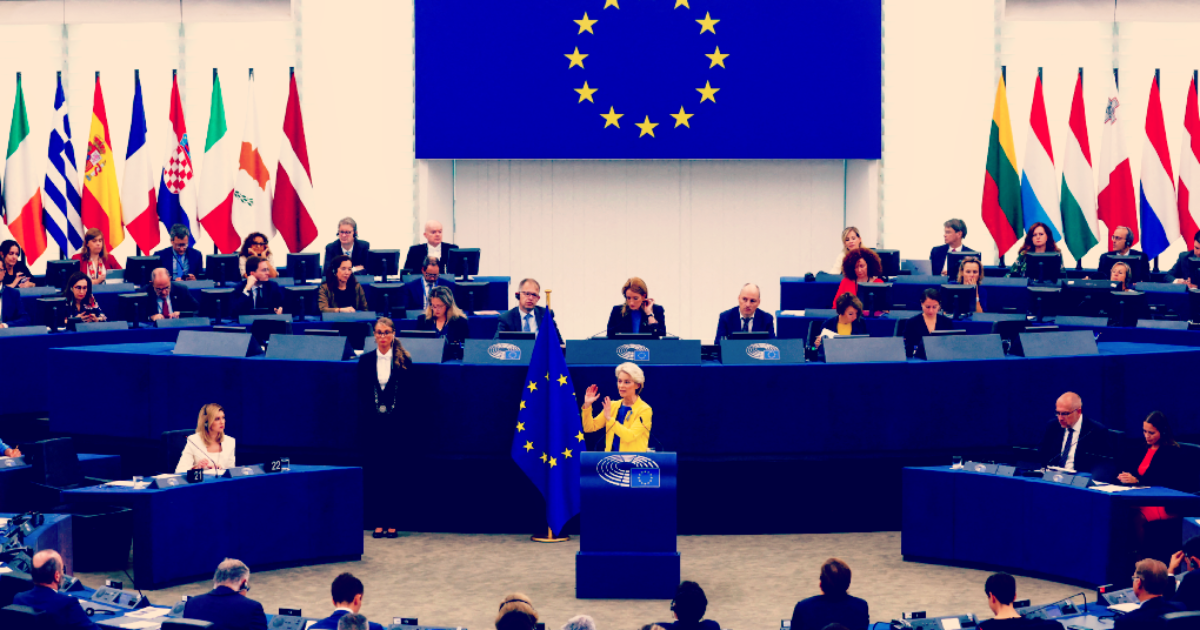Politics
European Parliament Rejects Landmark Legislation in the EU’s Agriculture Reforms – Climate Alarmism Is Losing Ground as Economic Situation Deteriorates

The European Green Deal is under attack.
As we continue to follow the relentless news cycle coming from Europe, we can identify two major trends that are in play both inside the countries and also in Pan-European terms.
The first, of course, is the rejection of unchecked mass migration. And the second, equally as urgent, is the pushback against the European climate alarmist policies.
Read: Despite All the Climate Alarmism Over ‘Global Warming’ at the COP28, the Northern Hemisphere Suffers Through Blistering Cold Temperatures at the Onset of Winter
It came to a point where the European Green Deal, that was once a point of political convergence, has now become a source of discord within the EU.
Euronews reported:
“The European Commission’s flagship project is under increasing attack, with the Nature Restoration Law called into question, the use of herbicide glyphosate extended for another ten years, the pesticide regulation being rejected and the EU’s chemical strategy postponed.”
Read: Rishi Sunak Rolls Back Multiple Environmental Policies in ‘Pragmatic’ Move That Leaves Climate Alarmists Fuming – British PM Worries About Financial Impact on Families
The EU has eagerly adopted multiple questionable laws, such as those favoring ‘renewable energy sources’, ‘energy efficiency’, a ‘carbon border tax’ and the delusional ‘end of the combustion engine’.
“Twelve out of 13 pieces of legislation have been adopted to meet the 2030 target of reducing CO2 emissions by 55%. But the effort is not over, and the political terrain now seems favorable to a more right-wing approach.
‘Sometimes we have overdone it or the majority in the Parliament has overdone it. Not giving people the choice, but making very prescriptive decisions from the European level which is never a good idea’, Peter Liese, a German MEP from the centre-right EPP Group told Euronews.
‘When we do everything that the Greens want, we will either not achieve our climate targets or we will lose a lot of jobs and competitiveness. And both are not good. We should prioritize. We should not overdo it and we should take people along’, he added.”
Read: Climate Alarmism Fail: Justin Trudeau’s Signature ‘Carbon Tax’ Is Rejected by Majority of Voters, as Canadian Families Struggle Financially
For some industrial sectors and businesses, as well as the farming community, complying with the European environmental regulations entails an additional burden.
Washington Examiner reported:
“Nearly 300 votes against, only 207 in favor: Those were the final results of a vote in the European Parliament on the ‘Sustainable Use of Pesticides’ directive, the landmark legislation of the European Union’s agriculture reforms. The plans would have cut back on pesticide and fertilizer use, as well as shifted a major part of Europe’s farmland use to organic. Now, the plans are all but dead, the architect of the European Green Deal has resigned, and next year’s EU elections are announcing a shift away from environmentalist ideas.”
Read: Covid-Skeptic, Anti-climate Alarmism, Against Mass Migration and Ukraine Military Help: a New Face For Germany’s Left, or Copycat of the Right?
The European Green Deal promises cuts in greenhouse gas emissions and ‘healthier lifestyles for consumers’.
It does not do that – instead, it adds considerable expenses to citizens.
“In the majority of models presented in the assessment, it is anticipated that GDP will contract. This contraction is closely linked to the decline in employment, consumption, and exports. The impact on countries heavily dependent on export industries will be especially severe, as these industries employ people who have limited options for reemployment. While service sectors such as the financial industry will experience less impact, this will result in a widening disparity of opportunities within the labor market.
Another weight on existing inequalities will be rising energy prices for consumers. As the German energy shift has shown already, a quick change to renewable energy sources, arrived through subsidization programs, sharply increases consumer energy prices. Prices of energy, housing, and water are all projected to rise. Some energy sources could see price rises of over 70%. Employment in key energy sectors, including gas and coal, could drop by more than 15%, affecting hundreds of thousands of jobs.”
Read more:
‘No, Scholz, You Can’t Use Leftover Pandemic Money in Your Climate Alarmist Policies’: German Constitutional Court
Read the full article here


















